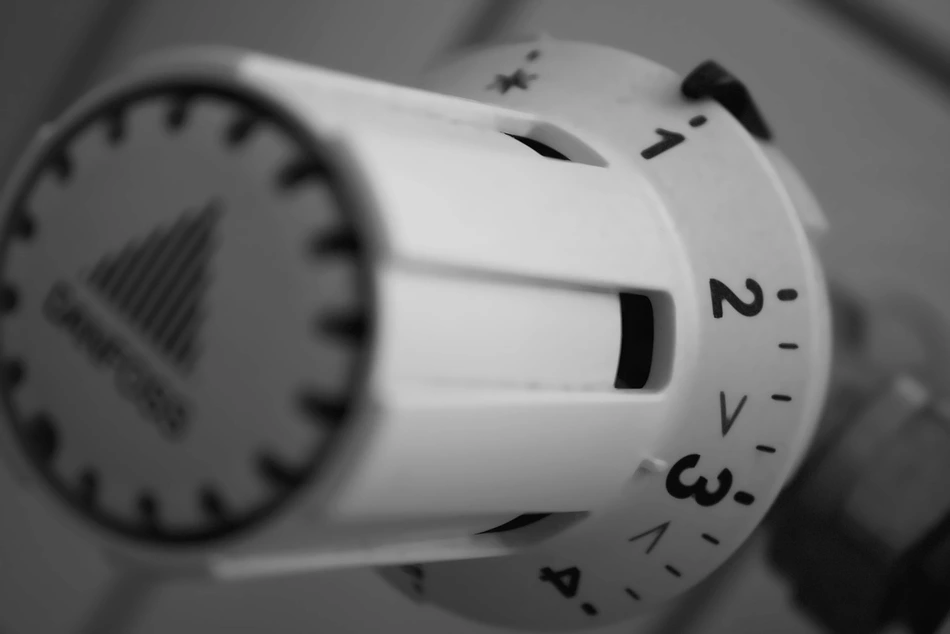Europe is currently preparing for a possible energy emergency in winter. Are we as a university also affected by this?
Quite clearly, yes. And already now – not just in winter.
In what way?
In Germany, alert level 2 (out of 3) of the nationwide "Gas Emergency Plan" has been in effect since 23.06.22. This means that we as a university are already affected. This already means that we as a university are urged to save energy. However, in the event of emergency level 3 occurring, significant energy restrictions are to be expected throughout Germany. For us, too. In the meantime, the Erfurt public utility company has announced that the university, as an educational institution (analogous to schools), would not be affected by a district heating shutdown for the time being. However, there are hardly any certainties in these times. Therefore, we should be prepared for all eventualities.
Who is taking care of this at the University of Erfurt?
At its meeting on 27 July, the Presidium decided to set up an internal university working group, which is now tasked with thinking through the various scenarios for the University of Erfurt and - where necessary – after consultation with the Presidium or, if necessary, referral to the committees, taking appropriate measures to safeguard teaching and research operations in the winter semester. In addition, the university is already in talks with the city and the state in order to be prepared for all eventualities.
What do we have to prepare for specifically?
As I said, the first thing is to save energy. And noticeably so. In this context, the federal government is currently discussing lowering the room temperature in workplaces – for sedentary work from at least 20 to 19 degrees Celsius in the future. There are also discussions about restricted heating times, switching off lighting in (parts of) buildings that are not absolutely necessary, and so on. The aim is, of course, to avoid a return to online teaching and home offices at all costs, as the German Rectors' Conference (HRK) has reiterated. Ultimately, however, all this will depend on many different factors and is out of our hands. So we will have to live with a certain degree of uncertainty at the moment - not least because the Corona situation in autumn/winter is not yet foreseeable. But the working group will discuss this in detail and take precautions where necessary. What we can think through and prepare now can no longer surprise us in winter.
How big is the "energy" budget item at the University of Erfurt, or to put it another way: how much energy do we consume annually and how much do electricity and heat cost us?
The costs are quite high, as you can certainly imagine. We consume around 3.7 GWh of electricity and 8.5 MWh for district heating and gas every year. At current prices, we expect costs of around 950,000 euros for electricity and 1.4 million euros for heating in 2022. And of course there are also water and sewage costs. Our building fabric certainly contributes to these costs to some extent. The heating systems, the pipelines, etc. – because of the age of the buildings, not all of them are up to date. Although we have of course already done a lot in recent years to improve our energy balance – whether with the replacement of thermostats on the radiators, the switch to LED lighting, the optimisation of the cooling supply in our server rooms, the replacement of old heating pumps with efficient pumps or our photovoltaic system on staff building 1, with which we have been generating our own energy since 2011 and thus saving operating costs and CO2.
What do we need the most energy for?
Most energy is needed for the ventilation systems in the library and the lecture halls. The Special Collection and the server rooms require special climatic conditions.
It will certainly not be possible to switch off the ventilation and air-conditioning systems in the Special Collection, for example, without further ado. Where do you see good energy-saving opportunities?
Our ventilation systems have been controlled by time programmes depending on use for years. For example, our heating circuits for room heating are operated at reduced temperatures outside of operating hours. But we can also do something on a small scale. That means: every individual can contribute something. Whether it is the heating, which we turn down where it is not absolutely necessary, or the lights, which we do not leave on unnecessarily, shutting down the PC at the end of the day, not leaving chargers in the socket unnecessarily, switching off media technology (beamer, acoustics and screen) after the (teaching) event, returning (teaching) rooms that have been booked but are not needed, changing to an – as we say in German – "onion look" when dressing which means wearing layers, if necessary, turning off dripping water taps and running taps, etc. report dripping taps and running toilets, ventilate the rooms in winter instead of leaving windows open and close doors to avoid unnecessary heat loss – there are a number of things we can do. But in any case, the times when we could be wasteful with energy are long gone, both from an ecological and a financial point of view. That should be clear to everyone.

